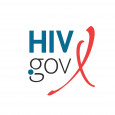Nearly 8,000 Health Resources and Services Administration (HRSA) Ryan White HIV/AIDS Program (RWHAP) and HIV/AIDS Bureau (HAB) Ending the HIV Epidemic in the U.S. (EHE) recipients, subrecipients, national, state, and local partners and organizations, planning council/planning body members, people with HIV, federal staff, and providers on the front lines working to deliver direct care to patients came together on Tuesday, August 20, in Washington, D.C. and virtually to kick off the 2024 Ryan White National Conference on HIV Care & Treatment (2024 NRWC) day one.
This year’s conference theme is “Innovating to End the HIV Epidemic: Empowering Communities, Expanding Partnerships, Implementing Interventions.” This theme reflects that to achieve the goal of ending the HIV epidemic, we must expand the use of innovative interventions that our recipients continue to develop; increase our collaboration and partnerships with organizations and community leaders who are not directly part of the public health community; meet people where they are to reduce HIV health-related disparities; and ensure people with HIV and their communities are involved in the planning, development, and implementation of HIV care and treatment strategies.
Day 1: Business Meetings
Day 1 of the conference began with a series of Business Meetings with the recipient staff responsible for administering RWHAP Parts and HAB EHE programs and initiatives. These sessions provided technical assistance, shared best practices, and highlighted how RWHAP and HAB EHE recipients are providing HIV care and treatment to people with HIV in their communities.
Opening Plenary: Federal Response to Ending the HIV Epidemic
The 2024 NRWC opening plenary featured a panel of national leaders in the federal efforts to end the HIV epidemic. HRSA’s HIV/AIDS Bureau Associate Administrator Dr. Laura Cheever, opened the conference with a warm welcome to attendees and dignitaries, including Francisco Ruiz, the White House Office of National AIDS Policy Director, and Jeanne White-Ginder, the mother of the Ryan White. She kicked off the plenary highlighting the 34th anniversary of the Ryan White CARE Act this past Sunday, August 18, which created the RWHAP. During her remarks, Dr. Cheever highlighted the latest HAB EHE data and shared how HRSA is challenging our RWHAP community to embrace the next step of work we need to do — reaching those not fully engaged in care – and unveiled HRSA’s new Ryan White Program 2030 vision. This vision calls on the RWHAP community to both continue caring for people in the program while prioritizing efforts toward reaching people with HIV who are out of care by leveraging partnerships, focusing interventions, and engaging community to end the HIV epidemic.
Next, HRSA Administrator Carole Johnson offered a sincere thank you for the incredible work of the RWHAP community and highlighted how the program has been instrumental to HRSA’s commitment to advancing equitable access to health care and to improving health outcomes for people with HIV. Administrator Johnson stressed the need for shared perspectives in the policy-making process. She expressed her gratitude for the collaborations that are supporting communities with HIV, which are important as we work together to achieve the Ryan White Program 2030 vision. Administrator Johnson said, “The Ryan White Program has been doing social determinants of health (SDOH) work before it had a name. It’s not a coincidence that we see improvements.”
Next, U.S. Department of Health and Human Services (HHS) Deputy Secretary Andrea Palm commended the work and successes of HRSA and other HHS agencies across the HIV treatment and prevention-treatment continuum, and said, “Living up to the memory of those we lost to AIDS requires us to do more than reflect on what could have been. It requires us to invest in a better future.” Deputy Secretary Palm announced more than $1.4 billion in Ryan White HIV/AIDS Program funding for the HRSA AIDS Drug Assistance Program and related awards. This HRSA funding ensures that more than 290,000 individuals with HIV who have low incomes receive lifesaving medication, quality HIV health care, and essential support services.
Dr. Jeanne Marrazzo, Director of the National Institute of Allergy and Infectious Diseases at the National Institutes of Health, presented a summary of the HIV landscape and highlighted the science and biomedical advancements in HIV. Dr. Marrazzo shared data and a rapid-fire review of research on treatment, prevention, and vaccine studies and focused on two major components—closing implementation gaps and developing new and improved interventions. She said, “NIAID is moving forward with innovation. However, there is still great challenges ahead. While the Institute is making strides, the improvements are not well distributed among minority communities, and there are still people who are showing up with progressed stages for HIV and AIDS. We can do more.”
Stay Connected to #NRWC2024
Want to stay connected to the 2024 National Ryan White Conference on HIV Care & Treatment? Follow HRSA on X (formerly Twitter): @HRSAgov. You can share which sessions you are enjoying throughout the week using #NRWC2024 and #34YearsofCARE.
Share Why You CARE
On Sunday, August 18, HRSA’s HIV/AIDS Bureau recognized the 34th anniversary of the Ryan White Comprehensive AIDS Resources Emergency (CARE) Act – the legislation that created the RWHAP. Help us celebrate by downloading the “I CARE Because…” flyer, print it out, fill it in, and post a picture of yourself with the flyer to our 2024 NRWC Photo Gallery. When posting, please use #34YearsofCARE and #NRWC2024. We will use the images throughout the remainder of the year to highlight how the RWHAP has made an impact in the lives of our community members.
Learn More
Learn more about the Ryan White HIV/AIDS Program and the 2024 NRWC:
- Ryan White HIV/AIDS Program website: https://ryanwhite.hrsa.gov
- 2024 National Ryan White Conference: https://ryanwhiteconference.hrsa.gov
This blog post was published August 22, 2024, on HIV.gov.








Comments
Comments